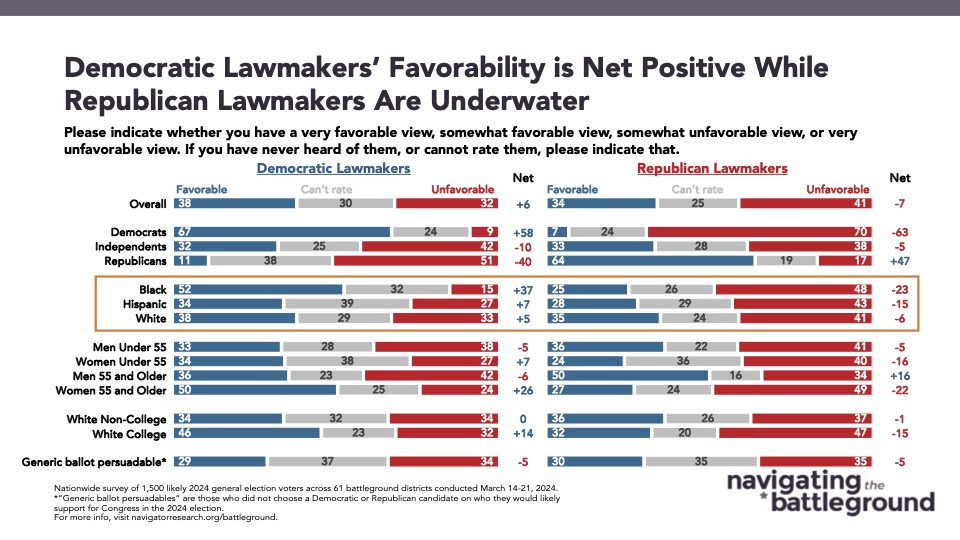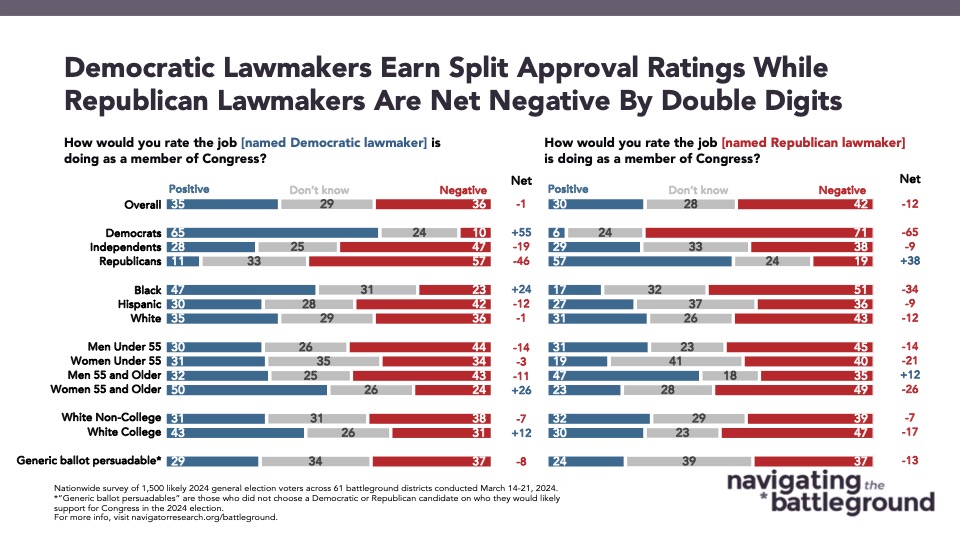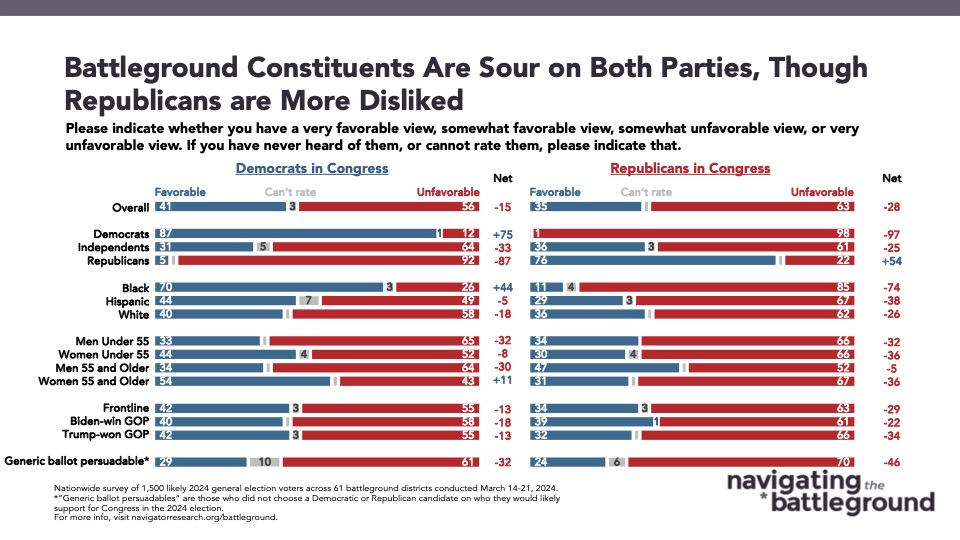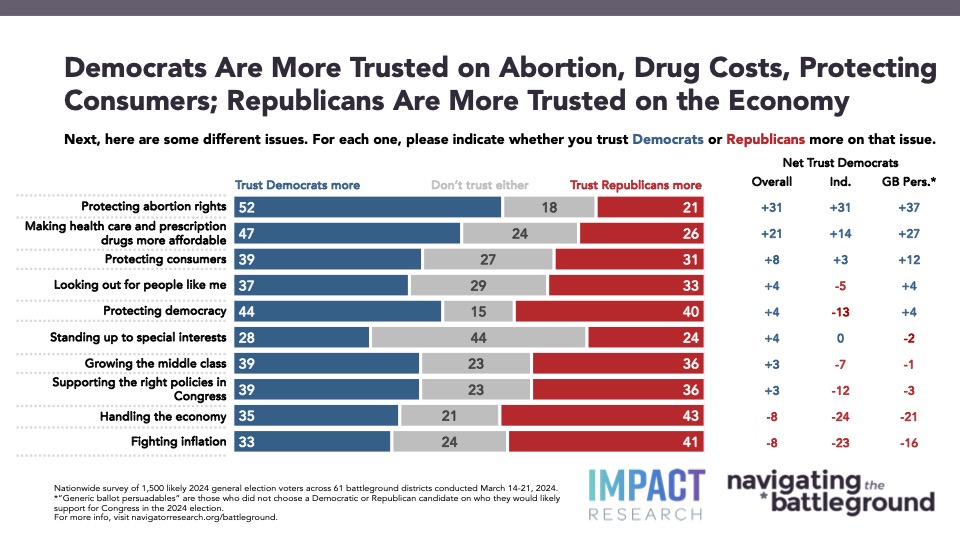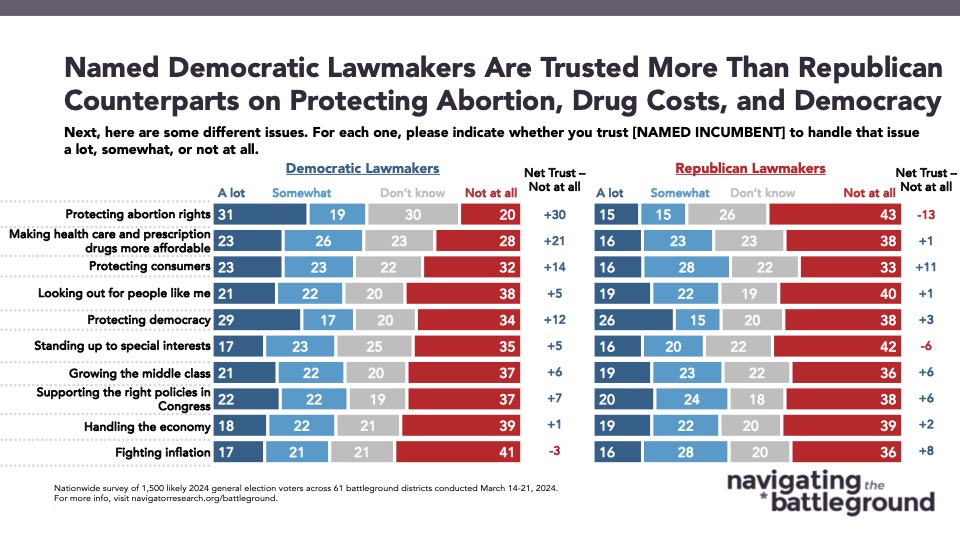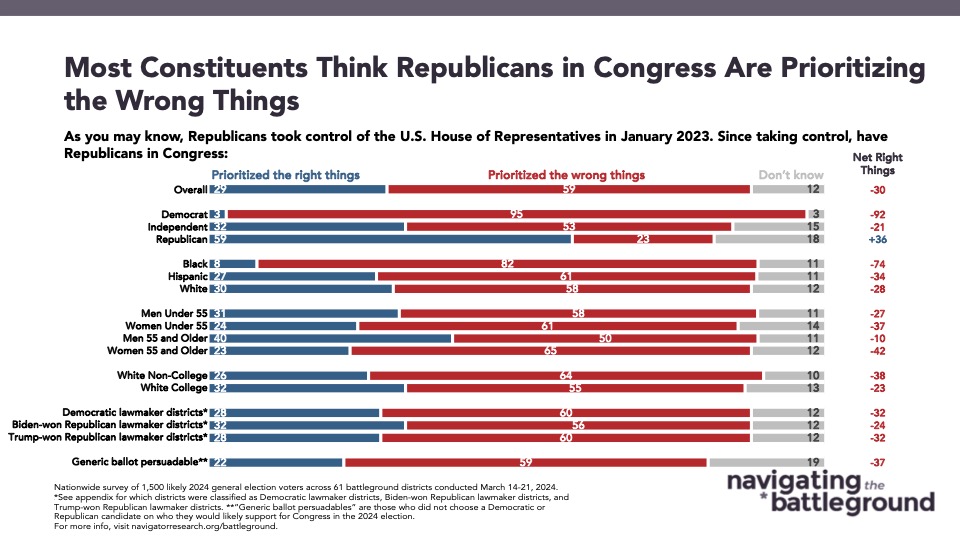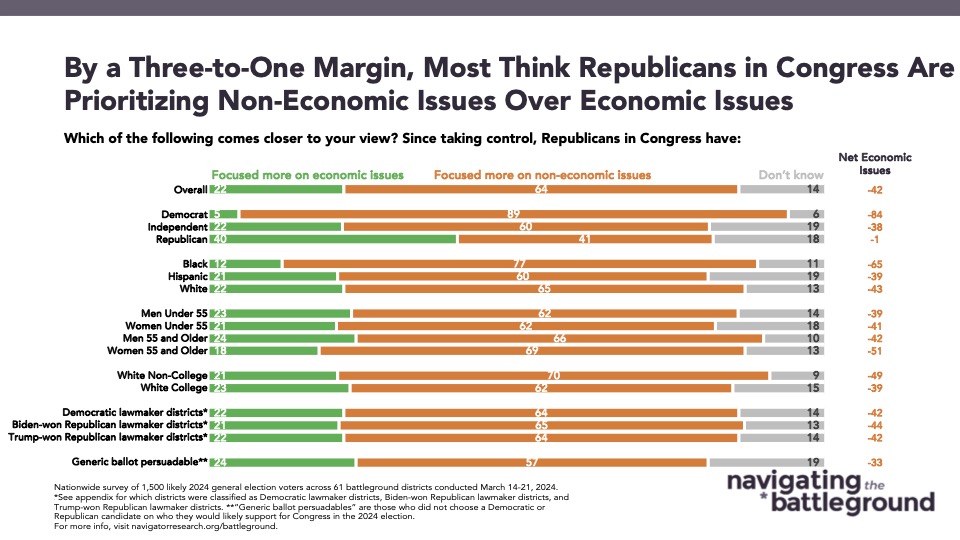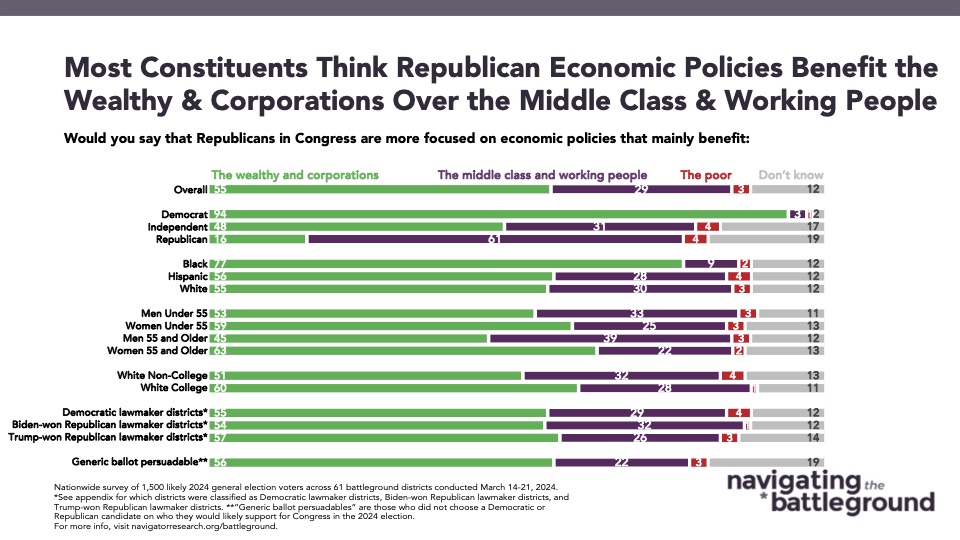Poll: Democratic and Republican Lawmakers
This Navigator Research report contains polling data on the favorability of battleground lawmakers, perceptions on the most important issues for Congress to prioritize, and who is most trusted to handle those issues.
Democratic lawmakers hold net positive favorability ratings while Republican lawmakers are underwater.
Battleground constituents represented by Democratic representatives rate them more positively on favorability and approval than constituents of Republican lawmakers rate their representatives. Battleground constituents with Democratic lawmakers rate those specific lawmakers net favorably by 6 points (38 percent favorable – 32 percent unfavorable), but those with Republican representatives are net unfavorable towards them by 7 points (34 percent favorable – 41 percent unfavorable). Similarly, battleground constituents have more negative ratings of their Republican lawmakers’ job performance (net -12; 30 percent positive, 42 percent negative), while Democratic lawmakers receive more evenly split job approval ratings (net -1; 35 percent positive – 36 percent negative).
- When rating favorability toward Democrats in Congress and Republicans in Congress more generally, both parties earn double-digit net negative ratings, generic Democrats in Congress are underwater by 15 points (41 percent favorable – 56 percent unfavorable) while generic Republicans in Congress are underwater by 28 points (35 percent favorable – 63 percent unfavorable).
- Black battleground constituents are favorable towards Democratic lawmakers by 37 points (52 percent favorable – 15 percent unfavorable) and Hispanic battleground constituents are favorable towards Democratic lawmakers by 7 points (34 percent favorable – 27 percent unfavorable).
Democrats in Congress are more trusted than Republicans in Congress to protect abortion rights, make health care more affordable, and protect consumers.
When asked who they trust more to handle certain issues, battleground constituents trust Republicans more to handle the economy (43 percent trust Republicans more – 35 percent trust Democrats more) and to fight inflation (41 percent trust Republicans more – 33 percent trust Democrats more), but trust Democrats more by 31 points when it comes to protecting abortion rights (52 percent trust Democrats more – 21 percent trust Republicans more), making health care and prescription drugs more affordable by 21 points (47 percent trust Democrats more – 26 percent trust Republicans more), protecting consumers by 8 points (39 percent trust Democrats more – 31 percent trust Republicans more), and protecting democracy by a narrower 4-point margin (44 percent trust Democrats more – 40 percent trust Republicans more).
- When asking about trust of their named Democratic and Republican lawmakers, the Democratic advantage expands and any generic Republican advantage evaporates. Democratic lawmakers have higher or tied levels of trust as Republican lawmakers on nearly every issue, including net +30 trust on protecting abortion rights compared to net -13 trust for Republican lawmakers, net +21 trust on making health care and prescription drugs more affordable compared to net +1 trust for Republican lawmakers, and net +12 trust on protecting democracy compared to net +3 trust for Republican lawmakers. Republican lawmakers’ one clear trust advantage is on fighting inflation at net +8 trust, compared to net -3 trust for Democratic lawmakers.
About three in five battleground constituents view Republicans in Congress as focused on the wrong things.
Majorities view the Republican House majority as focused on the wrong things – prioritizing non-economic issues over economic issues, and focusing their economic policies on benefiting the wealthy and corporations. By a two to one margin, battleground constituents believe that Republicans in Congress are prioritizing the wrong things more than the right ones (net -30; 29 percent prioritizing the right things – 59 percent prioritizing the wrong things), consistent with previous tracking in July last year. The sentiment that Congressional Republicans are focused on the wrong things is also felt by nearly two in three white non-college educated constituents (64 percent prioritizing the wrong things), three in five Hispanic constituents (61 percent), and a majority of independents (53 percent).
- An even larger share — 64 percent — believe Republicans in Congress have been focused more on non-economic issues since taking control of Congress compared to just 22 percent who believe they are focused more on economic issues. Additionally, when asked who Republicans in Congress are more focused on benefitting with their economic policies, a majority say the wealthy and corporations (55 percent), nearly double the share who say the middle class and working people (29 percent).
About The Study
Impact Research conducted public opinion surveys among a sample of 1,500 likely 2024 general election voters from March 14-21, 2024. The survey was conducted by text-to-web (100 percent). Respondents were verified against a voter file and special care was taken to ensure the demographic composition of our sample matched that of the 61 congressional districts included in the sample across a variety of demographic variables. The margin of error for the full sample at the 95 percent level of confidence is +/- 2.5 percentage points. The margin for error for subgroups varies and is higher.

